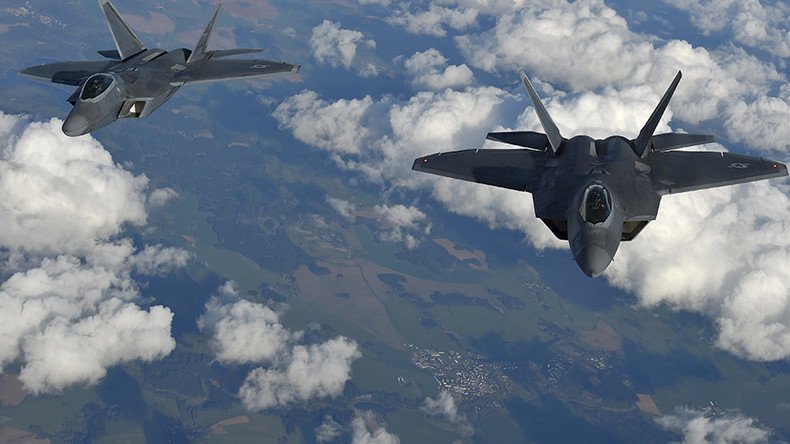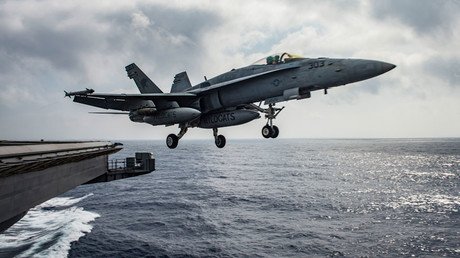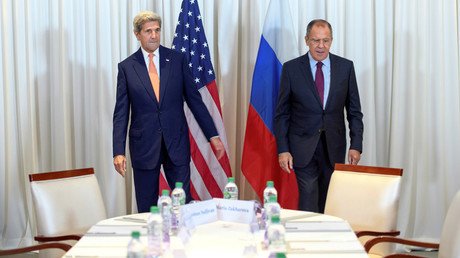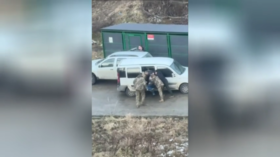‘No idea for three loops:’ US pilots recount how they ‘shadowed’ Syrian aircraft

American pilots that recently intercepted Syrian warplanes over the country’s northeast say the government jets had no idea they were being shadowed, while admitting that they could have easily shot down the planes if ordered to do so.
The US pilots involved described the situation for USA Today. On August 19, the Pentagon said that it had scrambled two F-22s after Syrian SU-24 jets reportedly conducted a bombing raid close to the positions of Kurdish forces and American advisers near the Syrian town of Hasakah.
One of the US pilots, a 38-year-old major, told the media that he had tailed a Syrian fighter jet “for all three of his loops”.
“He didn’t appear to have any idea I was there,” the serviceman said.
The tense situation could have ended with the Syrian jets being attacked if there had been any reported casualties among US ground forces, according to Major General Jay Silveria from the US air command center overseeing operations in the Middle East.
“All I needed at that point to shoot them down was a report from the ground that they were being attacked,” Silveria is quoted by the outlet as saying.
The military official added that the American combat planes were “in perfect position” to execute the order. Washington says Hasakah is in an area where Washington and Moscow have agreed that no Russian or Syrian planes should conduct combat missions.
While they normally try to maintain a safe distance from Russian or Syrian planes, American jets were granted permission by their commanders to approach the Syrian jets to see if they had any bombs attached to their wings. At no point were the Syrians aware of being “shadowed,” both American pilots said, adding that their attempts to reach them had been ignored.
It emerged later that the Syrian planes were not carrying bombs, and were merely on a transit route, USA Today said, citing sources including the American pilots involved, one of whom stressed that he was trying to act cautiously during the operation.
“I’m thinking how do I de-escalate this scenario to the best of my ability and also keep us in a safe position while doing so,” the 30-year-old captain said.
The Syrian “behavior stopped” after Washington made “a point,” said Major General Charles Corcoran, who is in charge of American air forces conducting strikes in Iraq and Syria, while stressing that “we’re not here to shoot down Russian or Syrian airplanes.”
Back in October of 2015, Russia and the US agreed upon a flight safety memorandum which regulates the flights paths and contacts of the countries’ air forces in Syria during an emergency situation. However, the sharing of military data desired by Moscow is still not part of the agreement.
On Friday, Russian Foreign Minister Sergey Lavrov once again addressed the issue during a joint press briefing with his American counterpart, John Kerry, in Geneva. Lavrov stressed the importance of increasing contacts regarding US and Russian air missions in Syria, adding that flight bans would not improve the current situation.
“The task is not how to make some parts of the conflict stop their air missions, but that those who do conduct such operations bomb terrorists,” Lavrov said.
The official admitted that proper coordination between Russia and the US “has not been established so far,” though he noted that both sides had agreed on several mutual points during their talks on Friday, which will be now discussed by the experts of both countries.














